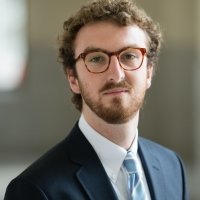
A blog of the Brazil Institute
Brazil's Foreign Minister Wants to Save the West from Postmodernism
The Curious Case of Ernesto Araujo
In November 2018, Jair Bolsonaro, then Brazil’s president-elect, made an explosive announcement: he would be appointing Ernesto Araujo to the position of foreign minister. This would have been a controversial appointment under any circumstances: Araujo, 51, had for most of his career been an undistinguished career diplomat within Brazil’s foreign service, the Itamaraty, and he had only recently achieved ambassadorial status, a middling rank in the corps. His colleagues described him as competent and bookish, but he was the most junior candidate for the top job in a country with an especially hierarchical diplomatic corps.
These were not normal circumstances. After spending years in Washington diligently promoting the policies of successive presidents from Brazil’s left-leaning Workers’ Party, in 2017 Araujo had shocked his colleagues by publishing a deeply conservative essay titled “Trump and the West” for the Itamaraty’s official journal. In the essay, Araujo denounced the United Nations and other so-called globalist forces for attempting to supplant true nationalism, which in his view arises from “gods and ancestors” rather than appeals to chimerical “values.” The West, Araujo wrote, was united neither by alliances nor by commitments such as human rights; it was a “community of nations” bound by “the scars of the past,” from the Greeks’ victory over the Persians at Salamis to the Allied landing at Omaha Beach.
Author


Brazil Institute
The Brazil Institute—the only country-specific policy institution focused on Brazil in Washington—aims to deepen understanding of Brazil’s complex landscape and strengthen relations between Brazilian and US institutions across all sectors. Read more

Explore More in Brazil Builds
Browse Brazil Builds
They're Still Here: Brazil's unfinished reckoning with military impunity



